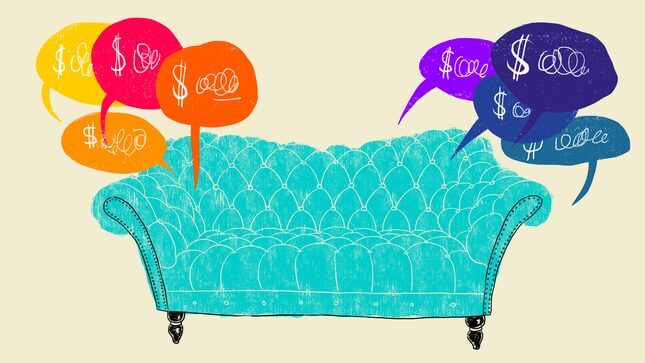Learning to Haggle Set Me Free
Latest
Illustration: Jim Cooke
When I moved into a studio apartment last year, the only piece of furniture I brought with me was a bed. I would love to say it was my hardheaded anti-materialism, but it was just easier to move with less stuff. Horoscopes and pithy self-help Instagram accounts always say you should let go of what no longer serves you, but when you’re packing up your entire existence and laying in the dark the night before the movers arrive, it is easy to overestimate what “no longer serves you,” so you can feel justified in putting it on the curb or leaving it behind for the next subletter to deal with.
Which is not a snub of hand-me-downs: Almost every piece of furniture I had in that old apartment had belonged to the previous tenant, one of my best friends who encouraged me to take over her room when she moved out. When I decided to live alone, though, I thought it was time to step up my furniture game. I knew that this would be potentially very expensive, but I would be patient, I told myself. I would wait for deals. I would invest, strategically, in pieces I loved, the kind of furniture people my age talk about acquiring when they are finally ready to “settle down.”
I did end up buying some pieces I really love, but I was wrong about almost everything else. I learned, over the many months I spent furnishing my new place, that I didn’t have to be patient. I did not have to be at the mercy of retailers, whether big-box or boutique, because there was another marketplace where I had leverage, I had power, and I got hooked on the feeling of wielding it. I’m talking about Craigslist. I’m talking about haggling.
-

-

-

-

-

-

-

-

-

-

-

-

-

-

-

-

-

-

-

-

-

-

-

-

-

-

-

-

-

-

-

-

-

-

-

-

-

-

-

-








































